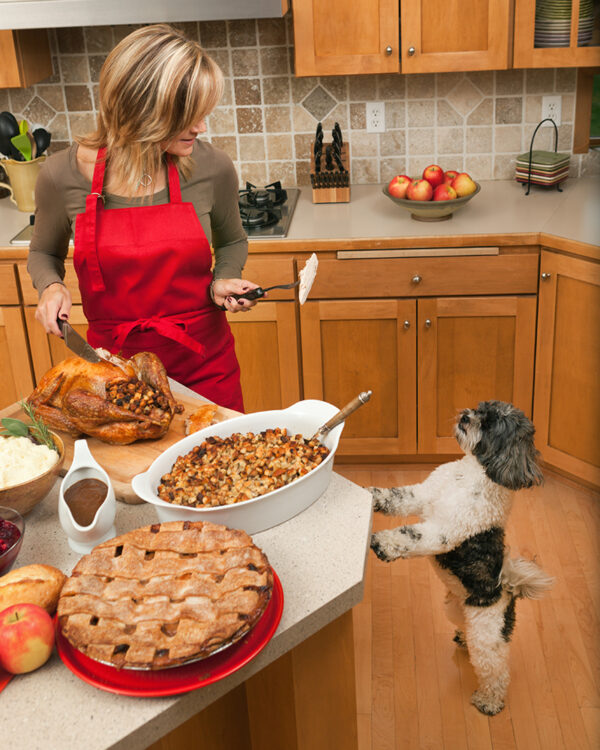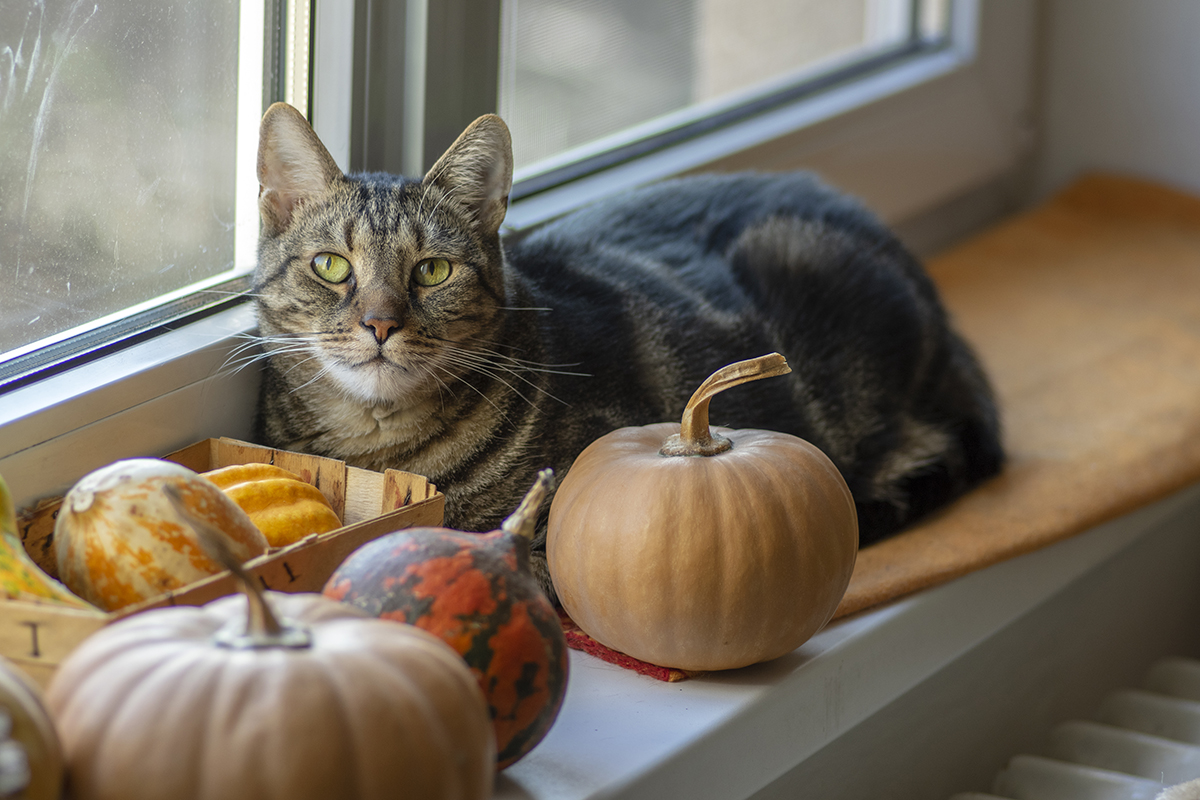
The enticing aroma of a Thanksgiving dinner cooking would make anyone want to sneak a taste, even our pets. And all the hustle bustle in the kitchen can make it fairly easy for them to do. But many of the things we enjoy on this festive occasion are not always good for dogs and cats. That’s why it’s important to take extra steps to ensure the safety of our pets, especially as we head into the holiday season.
A traditional Thanksgiving dinner will usually include foods that your pet can and cannot eat. Yet even the foods they can eat should only be given in moderation. Changes in your pet’s diet can lead to stomach upset, and foods high in fat can lead to more serious conditions like pancreatitis.
Below are some foods you can safely share with your pet and foods you should be sure to avoid.
- Lean white turkey meat. The lean white meat is a good source of protein and will be a welcome treat. Never give your pet dark meat, skin, fat, or bones. Fatty foods like ham or bacon should always be avoided. And don’t pour on the gravy – it’s far too fatty and often high in sodium.
- Unseasoned/Unprepared vegetables. Plain vegetables in small amounts, such as green beans, peas, corn (no cobs), broccoli (no stalks), and carrots can be shared with your pet. Potatoes are also safe to share, but only if they’re plain. Mashed potatoes and casseroles with cheese, butter, milk or cream should be definitely off limits. Before preparing these dishes, set aside a few small pieces of cooked potato for your pet to enjoy.
- Beware of seasoned foods. Never give your pet anything seasoned with garlic, onion, leeks, and chives. These seasonings are toxic to both dogs and cats. These can be found in many Thanksgiving staples, including stuffing, so it is best to be cautious and keep these foods out of your pet’s dish.
- No pies for pets. Apple, pumpkin, or sweet potato pie are full of sugar, butter, and other ingredients that can be harmful to our furry friends. If you’re baking from scratch, you can share a little fresh apple (no seeds or cores), unsweetened/unseasoned pumpkin puree or sweet potato.
- Desserts. Other pies and desserts, like fruitcakes or cookies, should be kept out of your pet’s reach as well. You may know that chocolate is toxic for dogs and cats, but so are raisins, currants, and the popular sugar-substitute Xylitol, also known as Birch Sugar. Many “sugar-free” foods are sweetened with this artificial sweetener which, even in small amounts, is toxic to dogs.
Another tip to remember is to keep your garbage secured. An open kitchen bin is a temptation most dogs can’t pass up, but turkey bones, jagged lids and foil wrappings can be life-threatening to your pet.
If your pet does ingest any of these harmful foods call your veterinarian immediately.
And lastly, after all the leftovers are put away, some play time with your favorite feline or an extra walk with Fido will be good for both you and your pet.



